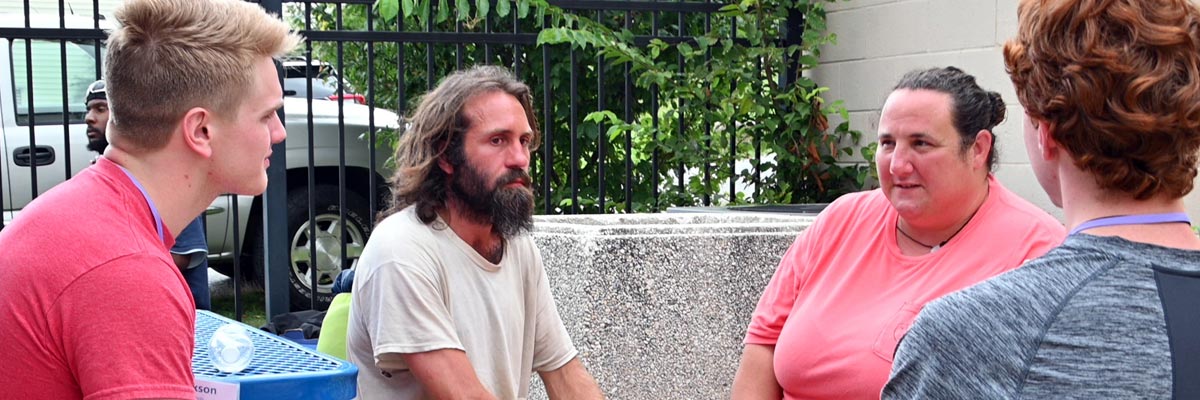Official Website of the
Catholic Diocese of Little Rock
Forgiveness, love found in Eucharist; gift empowers us to forgive
Published: April 16, 2005
By Father Andrew Smith
In the history of the Church, there has always been devotion to the Eucharist, our source of life. But the devotion has taken different forms throughout the centuries. Around the 13th century, people were drawn to the real presence of the Lord through the elevation of the host and the display of the host in a monstrance where it could be seen. The early Church, up through the fifth century, had great devotion to the Eucharist, but in a different way. The identification of a Christian life of sacrifice with the sacrifice of Christ celebrated in the Eucharist continued well into the Middle Ages, when theologians, following the example of Augustine, would most commonly identify a life of active faith and love, as that which the Eucharist produced, and that which it celebrated. A number of religious orders were founded for adoration of the Eucharist and emphasis was placed on communing with Christ rather than imitation of him. It seems we have both traditions today, don’t we? An integral aspect of our Church’s eucharistic theology is forgiveness. We know we should all ensure our worthiness to receive the body and blood of Christ by first turning to God’s love and mercy and seeking forgiveness for our offenses. Another aspect of this forgiveness is our belief in the need for us to forgive others. It is difficult to conceive of a more concrete way to love than by praying for one’s enemies. It makes us conscious of the hard fact that, in God’s eyes, we’re no more or no less worthy of being loved than any other person, and it creates an awareness of profound solidarity with all other people. It creates in us a world-embracing compassion and provides us in increasing measure with hearts free of the compulsive urge to coercion and violence. And we’ll be happy to discover that we can no longer remain angry with people for whom we’ve really and truly prayed. We will find that we start speaking differently to them or about them, and that we’re actually willing to do good for those who’ve offended us in some way. Whenever we receive the body and blood of Jesus in the Eucharist, his love is given to us — the same love that he showed on the cross. It is the love of God for all people of all times and places, and religions and creeds, all races and classes, all tribes and nations, all sinners and saints. On the cross Jesus has shown us how far God’s love goes. It’s a love that embraces even those who crucified him. When Jesus is hanging nailed to the cross, totally broken and stripped of everything, he still prays for his executioners: “Father, forgive them; they do not know what they are doing.” Jesus’ love for his enemies knows no bounds. He prays even for those who are putting him to death. It is this, the enemy-loving of God, which is offered to us in the Eucharist. To forgive our enemies doesn’t lie within our power — that is a divine gift. That’s why it’s so important to make the Eucharist the heart and center of our life. It’s there that we receive the love, which empowers us to take the way that Jesus has taken before us; a narrow way, a painful way, but the way that gives us true joy and peace and enables us to make the non-violent love of God visible in the world. Father Andrew Smith is pastor of St. Bernard Church in Bella Vista and St. Thomas Aquinas University Parish in Fayetteville.









